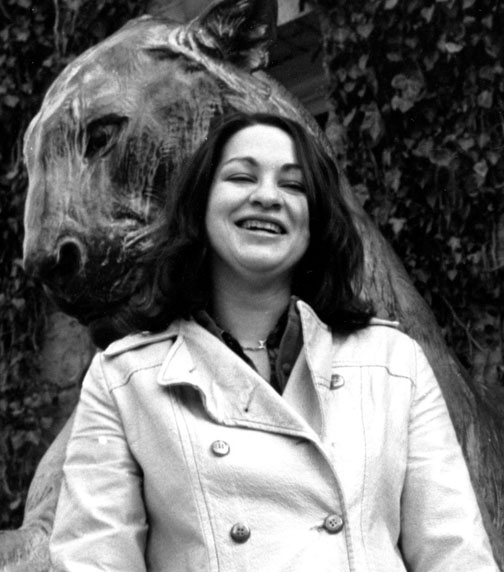Sotomayor ’76 Recalled as Activist for Latino Causes at Princeton
Federal appeals court judge Sonia Sotomayor ’76, nominated May 26 for a seat on the U.S. Supreme Court, excelled academically at Prince-ton while advocating to increase the number of Latino faculty and students.
Sotomayor graduated summa cum laude as a history major, was inducted into Phi Beta Kappa, and was a co-winner of the Pyne Prize. Her thesis dealt with modern Puerto Rican history.
William G. Bowen *58, who became Princeton’s president the year Sotomayor arrived at the University, told The New Yorker that he remembered her as “remarkably mature” and that she “worked very purposefully, but always constructively, to take a good place and make it better.”
Sotomayor was a founder of the Latino Student Organization and a member of the Third World Center’s governing board. She became co-chairwoman of a student group called Acción Puertorriqueña, and was among a group of Puerto Rican and Chicano students who filed a 1974 complaint with the Department of Health, Education and Welfare charging the University with “an institutional pattern of discrimination.”
In videotaped remarks from an early 1990s conference on women in the judiciary, Sotomayor described herself as “a product of affirmative action ... My test scores were not comparable to my colleagues at Princeton and Yale [where she went to law school and was editor of the law journal]. Not so far off that I wasn’t able to succeed at those institutions.”
Sergio Sotolongo ’77, who knew Sotomayor both in high school and at Princeton, described her as a “deep thinker, extremely focused” and added: “Clearly, she identified herself as a Latina and was active on a number of political issues on campus.” She would be “a terrific justice,” he said.
The daughter of parents from Puerto Rico, Sotomayor grew up in the Bronx, N.Y. She was awarded an honorary doctor of laws degree from Princeton in 2001, and became a University trustee in 2007.













3 Responses
John C. Tucker ’55
10 Years AgoContrasting opinions
It is ironic that if Justice Samuel Alito ’72’s Concerned Alumni of Princeton had had its way, Justice Sonia Sotomayor ’76 would not have been admitted to Princeton.
Justice Alito’s alliance with an organization that sought to block affirmative action and the admission of women to Princeton is one demonstration of the truth behind Ms. Sotomayor’s statement, “I would hope that a wise Latina woman with the richness of her experiences would more often than not reach a better conclusion than a white male who hasn’t lived that life.”
There will be many more such demonstrations in the opinions that are likely to be written by the two Princeton justices in the years to come.
Charles S. Rockey Jr. ’57
10 Years AgoA tale of two justices
All Princetonians should be proud that Judge Sonia Sotomayor ’76 (Notebook, July 15) has been confirmed for a seat on the U.S. Supreme Court. It is interesting to note that she has received an honorary degree from Princeton and Justice Samuel Alito ’72 has not.
It’s also noteworthy that Justice Sotomayor sits on Princeton’s board of trustees and Justice Alito does not. Is this because she is a liberal Democrat and he is a conservative Republican, or is there some other more subtle reason?
Charles S. Rockey Jr. ’57
10 Years AgoA tale of two justices
All Princetonians should be proud that Judge Sonia Sotomayor ’76 (Notebook, July 15) has been confirmed for a seat on the U.S. Supreme Court. It is interesting to note that she has received an honorary degree from Princeton and current Justice Samuel Alito ’72 has not.
It’s also noteworthy that Justice Sotomayor sits on Princeton’s board of trustees and Justice Alito does not. Is this because she is a liberal Democrat and he is a conservative Republican, or is there some other more subtle reason?